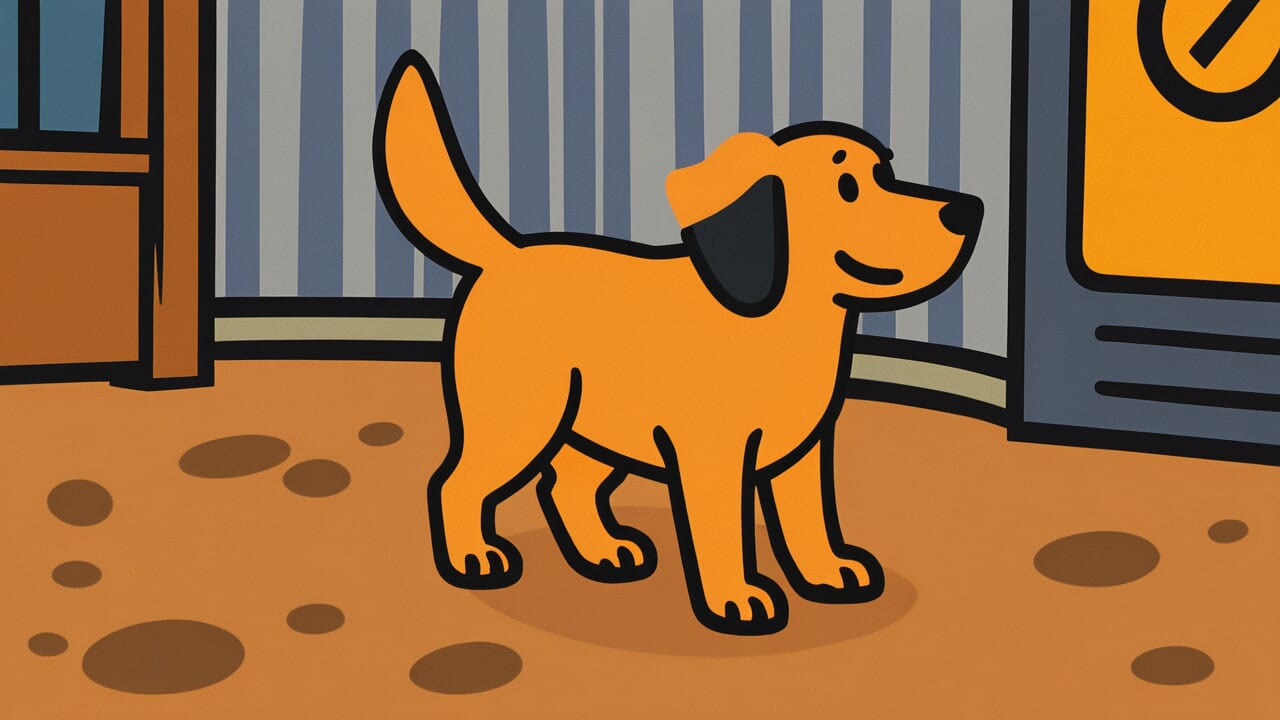How to Read “A dog doesn’t bark without a shadow”
Kage mo nai noni inu wa hoenu
Meaning of “A dog doesn’t bark without a shadow”
“A dog doesn’t bark without a shadow” means that reactions and criticism don’t arise without some basis.
Just as a dog never suddenly starts barking at nothing, there’s always a reason when it barks. Similarly, when people gossip, criticize, or react to something, there’s always some underlying cause or basis.
This proverb is used like “where there’s smoke, there’s fire” when someone faces criticism or becomes the subject of rumors.
If people are talking about someone, it’s rarely completely baseless. There’s usually at least some reason behind it.
On the flip side, this saying can also encourage someone who’s been falsely accused. If you truly did nothing wrong, the suspicion will eventually clear.
Even today, this proverb offers valuable insight when thinking about relationships and social reputation.
Origin and Etymology
No clear written records document the exact origin of this proverb. However, we can make interesting observations from how the phrase is constructed.
The word “shadow” has long meant “proof of something with form” or “trace of existence” in Japanese.
Just as a shadow only appears when sunlight hits something real, a shadow cannot exist without an actual object. This physical fact likely evolved into metaphorical meaning.
Meanwhile, the phrase “a dog doesn’t bark” reflects long observation of canine behavior.
Dogs were often kept as guard animals. They would bark at suspicious presences or actual intruders to alert people. In other words, when a dog barks, there’s always a reason worth barking about.
By combining these two elements, the lesson emerged: “reactions don’t occur without basis.”
By linking the behavior of a familiar animal with an everyday phenomenon like shadows, abstract truth becomes easier to understand.
This proverb represents wisdom born from common people’s lives, condensed into simple words.
Usage Examples
- There are fraud allegations against that company. A dog doesn’t bark without a shadow, so maybe there’s something to it.
- Criticism of her continues, but a dog doesn’t bark without a shadow. She probably knows something about why this is happening.
Universal Wisdom
“A dog doesn’t bark without a shadow” contains deep wisdom about cause and effect in human society.
Why has this saying been passed down through generations? Because humans constantly seek to understand “why things happen.”
People dislike randomness and baselessness. When something occurs, we always try to find the reason.
When rumors spread, we wonder “why such rumors?” When criticism arises, we search for “what caused it?”
This psychology is an ability humans developed to survive. Detect danger, identify causes, take countermeasures. This cycle has shaped human history.
At the same time, this proverb reveals the truth that human actions always leave traces.
Nothing can be completely hidden. No matter how small an action, it will eventually appear in some form. Good deeds and bad deeds alike will eventually become visible “shadows.”
This insight has encouraged people to live honestly. Knowing that things will eventually come to light motivates people to live righteously.
The deterrent and educational power of this proverb is why it has been passed down through the ages.
When AI Hears This
Whether a dog should bark is actually a sophisticated judgment problem. Let’s think from the dog’s perspective.
When it hears a sound, if there’s real danger and it doesn’t bark, the owner might get attacked. But if it barks at nothing, it wastes energy and gets scolded.
Signal detection theory classifies this judgment into four outcomes. Bark when there’s danger (correct), don’t bark when safe (correct), bark when safe (false positive), don’t bark when there’s danger (false negative).
This proverb says “doesn’t bark without a shadow,” meaning few false positives. But for living creatures, the costs of false positives and false negatives are completely different.
Barking at nothing (false positive) wastes energy at most. But missing a real burglar (false negative) can be life-threatening.
Through evolution, animals optimized toward setting more false positives. An animal that runs when grass rustles seems timid, but if 99 out of 100 times are false alarms, surviving that one real danger keeps it alive.
Modern airport metal detectors follow the same design philosophy. They’re set to high sensitivity, reacting even to harmless objects.
Better to have false alarms requiring re-screening than to miss something dangerous.
The “wise dog that doesn’t bark without basis” this proverb describes actually uses a risky judgment standard as a survival strategy.
Lessons for Today
This proverb teaches you the importance of taking responsibility for your actions.
No matter how hard you try to hide something, your actions will eventually appear in some form. So why not make choices you can be proud of from the start?
At the same time, this proverb deepens your understanding of others.
When someone faces criticism, don’t immediately jump on the bandwagon. Take a calm approach and ask “why did this happen?”
Judging without confirming the basis damages your own credibility too.
Modern society overflows with information, making truth hard to judge. That’s exactly why this ancient wisdom shines.
When you encounter rumors or criticism, pause and think. Does a real “shadow” exist? Or is it an illusion someone created?
If you live honestly, even if temporarily suspected, the truth will eventually become clear.
Conversely, even small dishonesty will someday appear as a “shadow.”
Keep this truth in your heart and live each day with care.



Comments